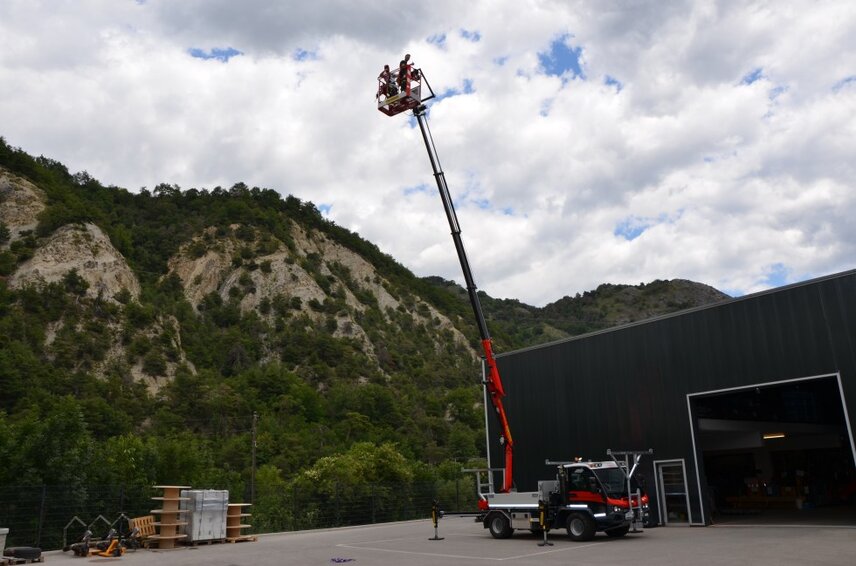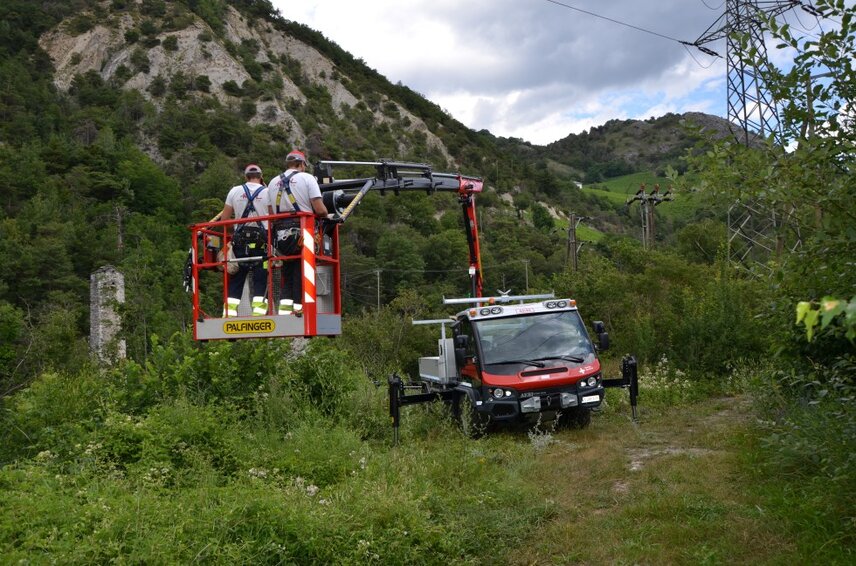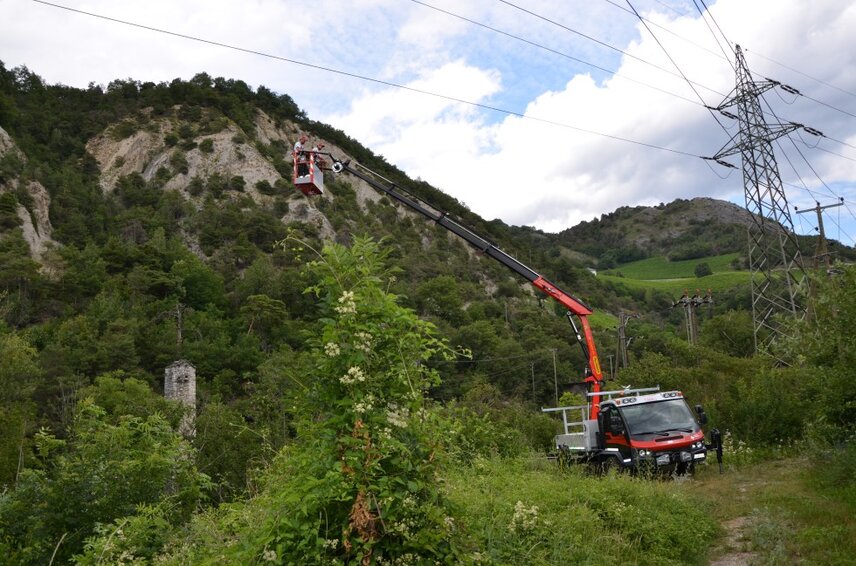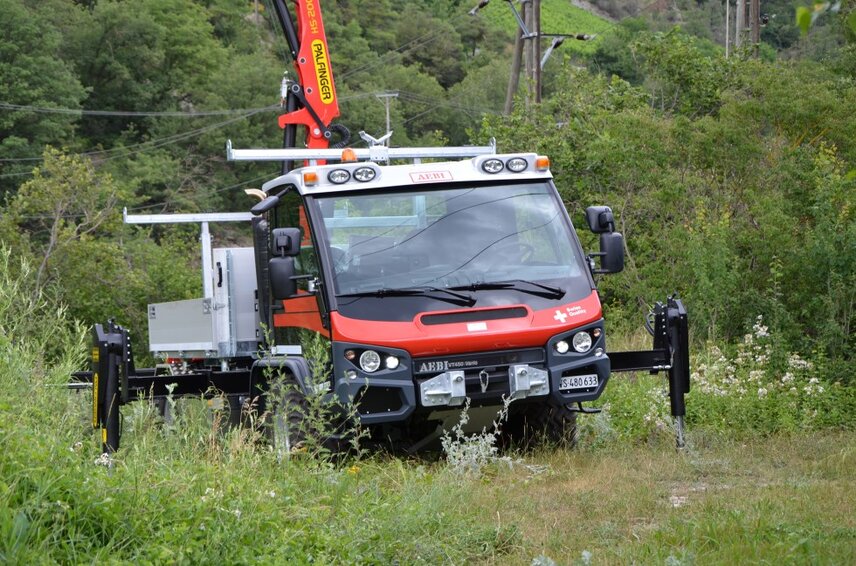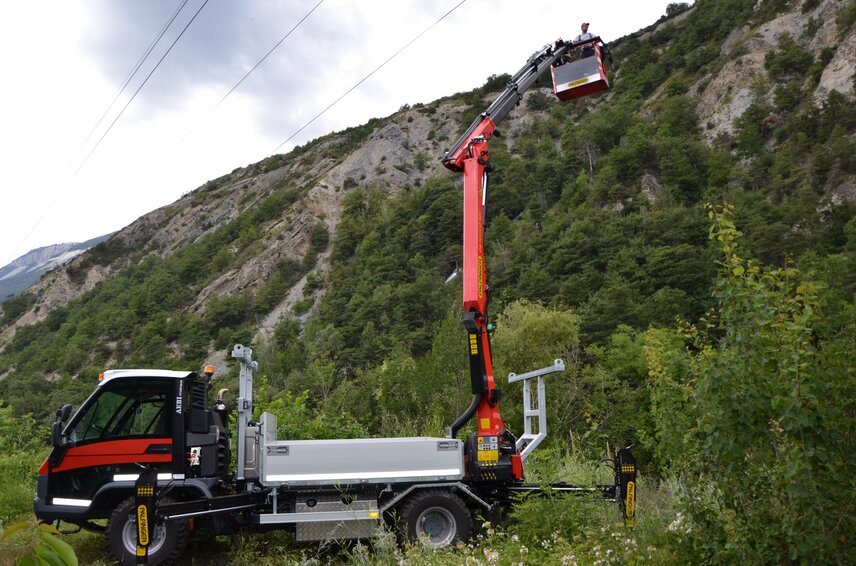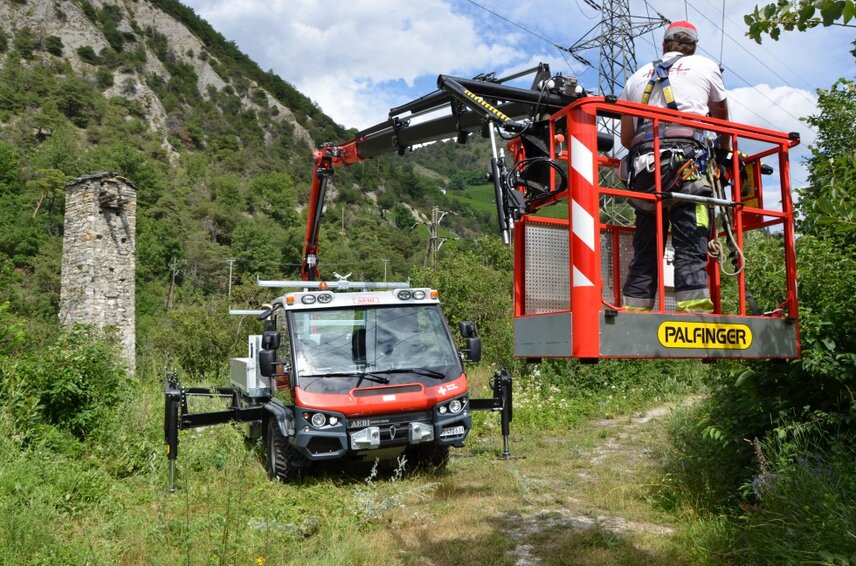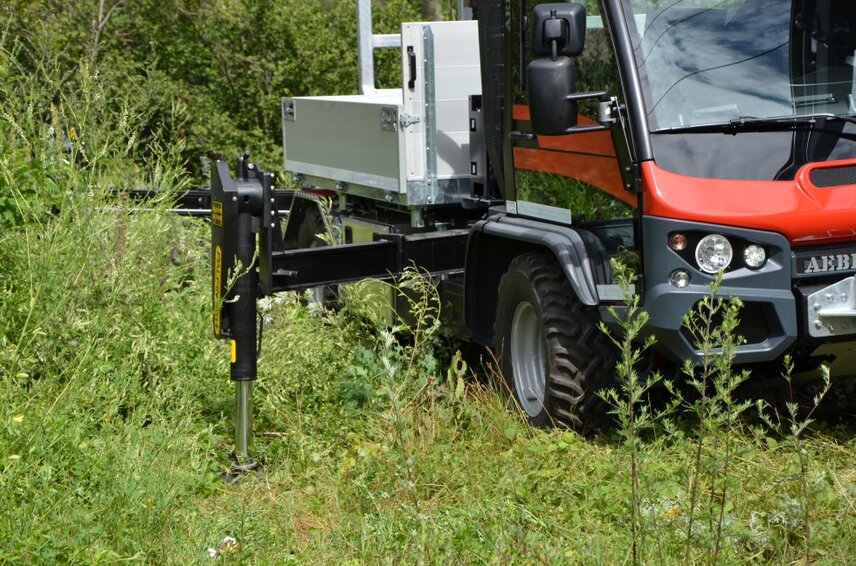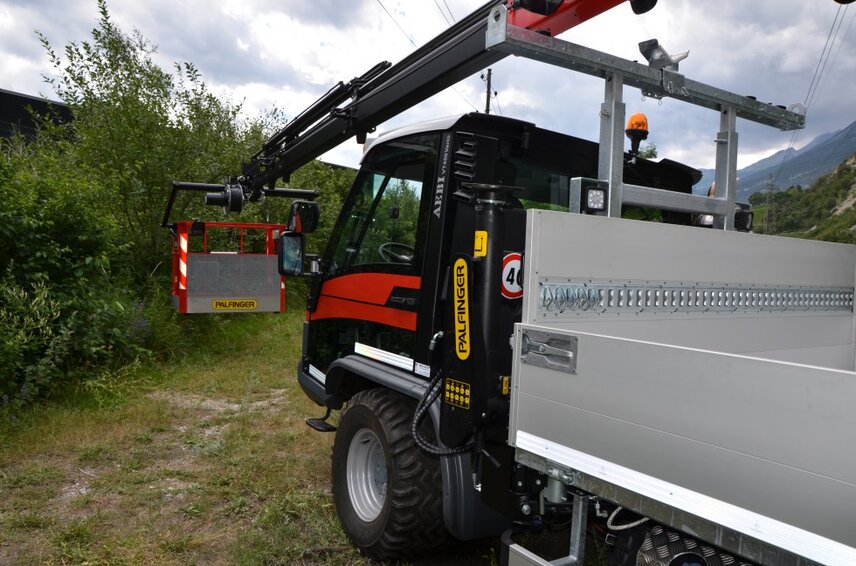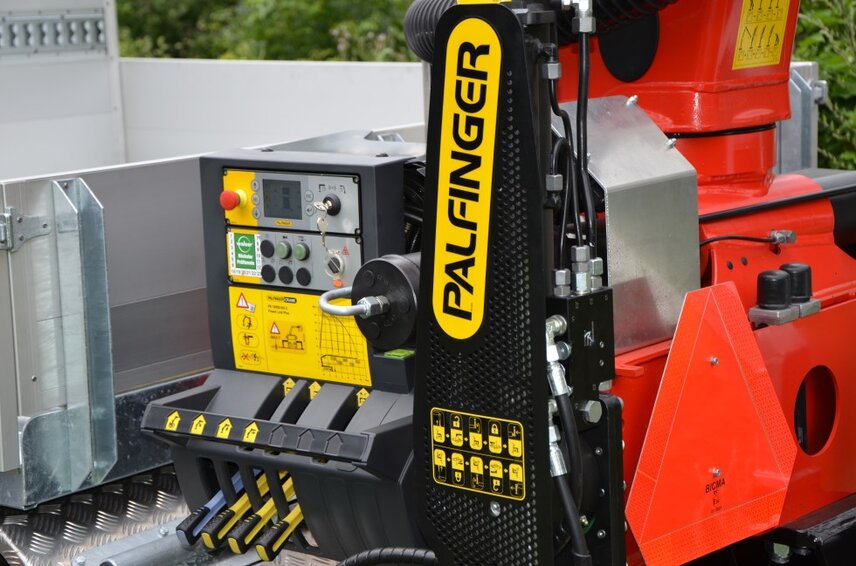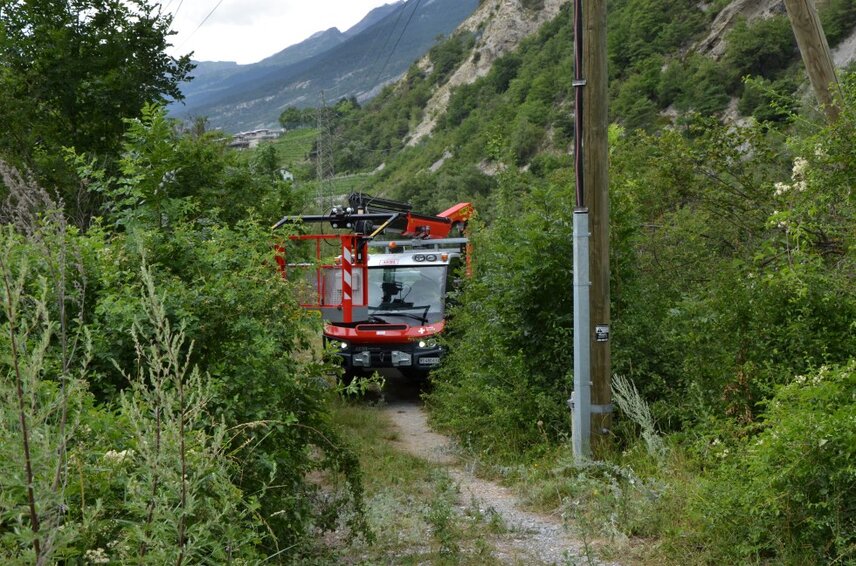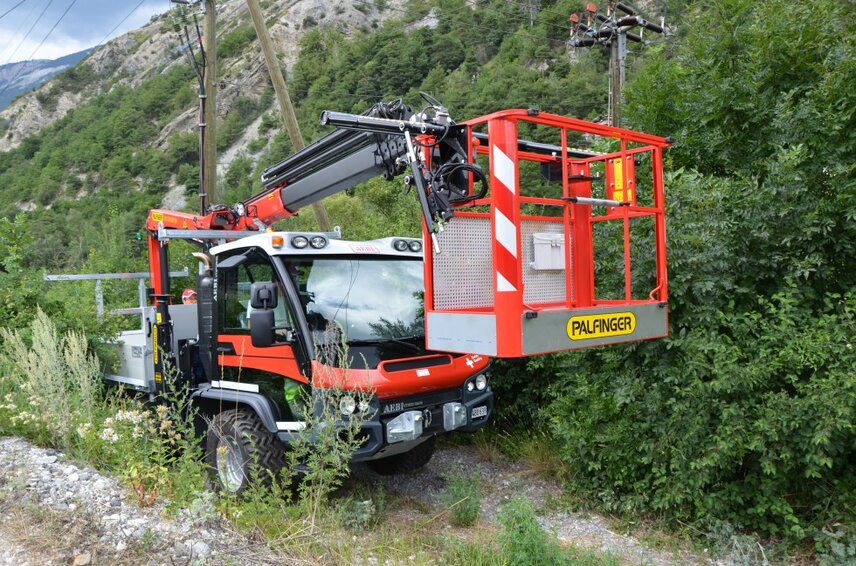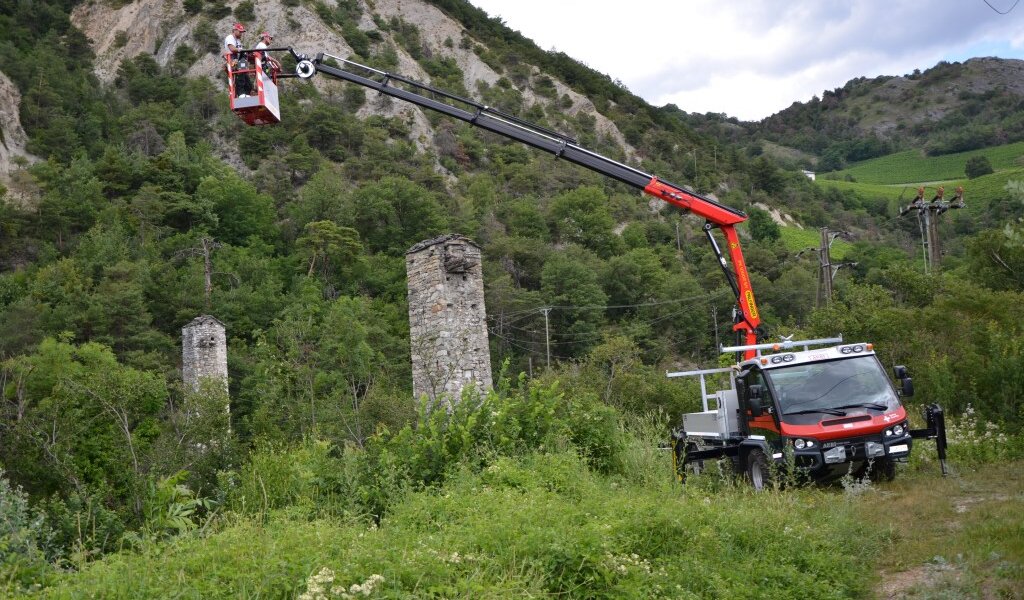It wasn’t long ago that the majority at the regulars’ table thought it would be a while before we could work as well in agriculture with electrically powered vehicles. And some thought and perhaps still think that this will never be possible. However, there are fewer and fewer doubters and this has to do directly with many local initiatives that have convinced farmers and fleet managers of the opposite.
In September, for example, the Linth Energy Alliance invited farmers to the farm “Im Büel” in Glarus (Switzerland). A few weeks later, the e-Mola association invited employees and decision-makers from local communities to the maintenance depot of the Swiss city of Reinach. Although our electric compact sweeper eSwingo 200+ was in the spotlight at the maintenance depot (see article in BAZ, in German), electrically powered transporters are just as indispensable in municipal service as in the energy industry. In the public discussion and when standing directly at the vehicle it is often forgotten that, in the background, the energy industry is very strongly challenged regarding the development and conception of the infrastructure. Aebi Schmidt could deliver a Aebi VT to the ReLL energy company in Susten (CH) in October. Although still conventionally operated, the handover showed impressively that there is much more to infrastructure than simply pulling in a larger cable – and that the work requires much more than just a «normal» vehicle!
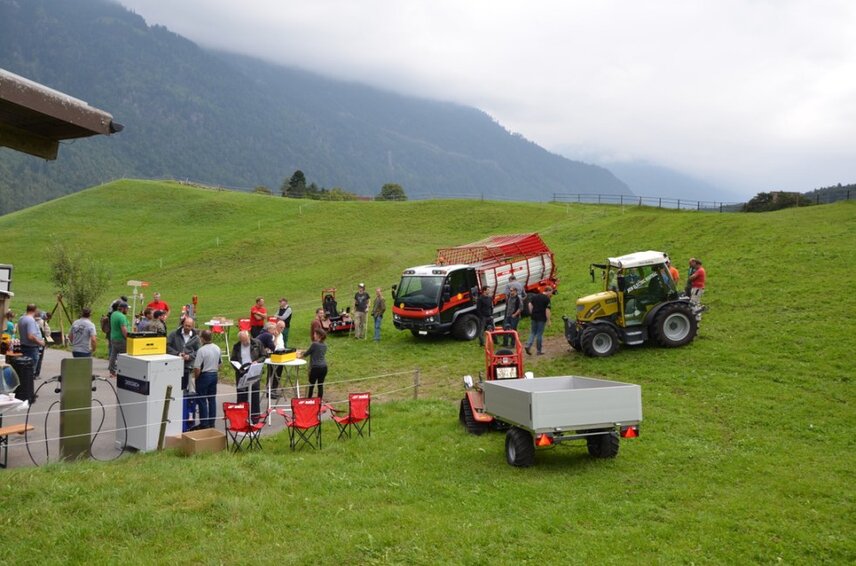
Ultimately, it is similar properties and advantages that are convincing in addition to the emission-free drive and the more economical drive calculated over the service life – keyword Total Cost of Ownership. And this should not only apply to Switzerland in particular, but also to many other countries.
- Electrically powered models can score points if they have little or no retraining. No matter whether sweeper or transporter, the user gets in, wants to find himself in his «working environment» and count on identical driving characteristics despite different drives.
- Quite a few photovoltaic systems will reach the end of the subsidy period in the foreseeable future or the subsidy will be discontinued or reduced. It will therefore be attractive for companies to use the energy themselves at virtually zero cost instead of reselling it. On the other hand, it is highly probable that individual companies and industries will be faced with CO2 reduction targets in the foreseeable future. It goes without saying that an electrically powered vehicle can make a contribution here.
- For many companies and enterprises, a large payload and individual equipment options suitable for the specific tasks and area of operation are indispensable. Aebi – a pioneer in this respect – has proven with the eVT450 prototype, among other things, that one does not have to compromise with electrically powered vehicles, just like its sister brand Schmidt with the eSwingo 200+ did, too.
If you are still a doubter: Read more about the experiences at the events from the organizers and in the press and click on the links above. For farmers, we would like to recommend that you read the presentation slides presented by Priska Stierli, Managing Director of the AgroCleanTech association in Glarus, Switzerland (in German). Or click your way through the following photos, which provide an insight into the work of ReLL Dienstleistungen AG in Susten.
